
The Pogues are an English or Anglo-Irish Celtic punk band fronted by Shane MacGowan and others, founded in King's Cross, London, in 1982, as Pogue Mahone, an anglicisation of the Irish phrase póg mo thóin, meaning "kiss my arse". Initially poorly received in traditional Irish music circles—the celebrated musician Tommy Makem called them "the greatest disaster ever to hit Irish music"—the band were subsequently credited with reinvigorating the genre. They later incorporated influences from other musical traditions, including jazz, flamenco, and Middle Eastern music.

The Popes are a band originally formed by Shane MacGowan and Paul "Mad Dog" McGuinness, who play a blend of rock, Irish folk and Americana.
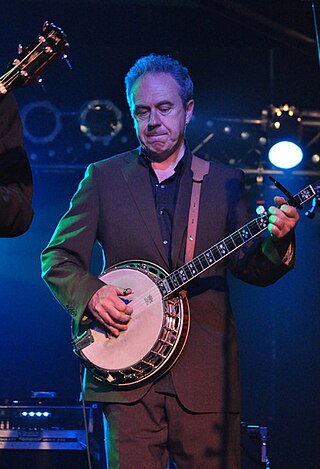
Jeremy Max Finer is an English musician, artist and composer. He was one of the founding members of the Pogues.

If I Should Fall from Grace with God is the third studio album by Celtic folk-punk band the Pogues, released on 18 January 1988. Released in the wake of their biggest hit single, "Fairytale of New York", If I Should Fall from Grace with God also became the band's best-selling album, peaking at number three on the UK Albums Chart and reaching the top ten in several other countries.

Red Roses for Me is the debut studio album by the London-based band the Pogues, released on 15 October 1984. It was produced by Stan Brennan, who had managed the Nipple Erectors/The Nips and Rocks Off Records shop in London.

Philip Ryan, professionally known as Philip Chevron, was an Irish singer-songwriter and guitarist and record producer. He was best known as the lead guitarist for the celtic punk band the Pogues and as the frontman for the 1970s punk rock band The Radiators from Space. Upon his death in 2013, Chevron was regarded as one of the most influential figures in Irish punk music.
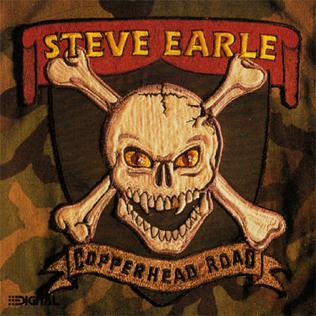
Copperhead Road is the third studio album by Steve Earle, released in 1988. The album is often referred to as Earle's first "rock record"; Earle himself calls it the world's first blend of heavy metal and bluegrass, and the January 26, 1989 review of the album by Rolling Stone suggested that the style be called "power twang".

Hell's Ditch is the fifth studio album by the Pogues, released on 1 October 1990, and the last to feature frontman Shane MacGowan as a member.
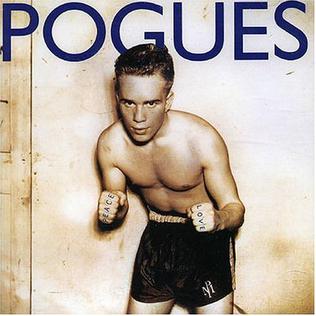
Peace and Love is the fourth studio album by the Pogues, released in July 1989.

Peter Richard "Spider" Stacy is an English musician, singer, songwriter, and actor. He is best known for playing tin whistle and sometimes singing for the Pogues.

James Fearnley is an English musician. He plays accordion in the Pogues.
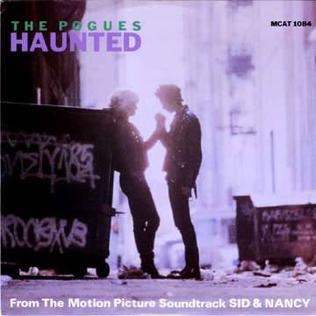
"Haunted" is a 1986 single by The Pogues. It was featured on the Sid and Nancy Soundtrack, the original soundtrack for the movie Sid and Nancy. It reached chart position #42 in the UK. Originally sung by Cait O'Riordan, in 1995 the song was re-recorded as a duet between former Pogues vocalist Shane MacGowan and Sinéad O'Connor for the Two If by Sea/Stolen Hearts soundtrack, this time reaching #30 in the UK. The original version was included on disc 1 of the 2008 compilation "Just Look Them In The Eye And Say... POGUE MAHONE!!"
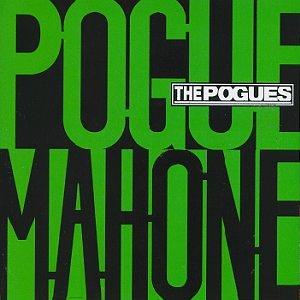
Pogue Mahone is the seventh and final studio album by the Pogues, released in February 1996. The title is a variant of the Irish phrase póg mo thóin, meaning "kiss my arse", from which the band's name is derived. It was the band's second studio album recorded after the departure of Shane MacGowan, and features Spider Stacy in the role of lead singer.

"Tuesday Morning" is a song recorded by English or Anglo-Irish Celtic punk band The Pogues, released in 1993 by WEA as a single from their first post-Shane MacGowan album, Waiting for Herb (1993). It was the band's last single to make the UK top 20, and the first single to feature Spider Stacy on vocals. The song itself was composed by Stacy. It reached number 18 on the UK Singles Chart and also culminated in their last performance on Top of the Pops. It is also their most successful single internationally, peaking at #11 on the US Billboard Modern Rock Tracks chart. The accompanying music video featured clips from Pogues videos from down the years.

"Once Upon a Time" is a song by The Pogues released as a single in 1993 from their sixth album, Waiting for Herb. The song was the band's last single to chart in the UK, making number 66, before the band broke up in 1996 following the release of their seventh and final album, Pogue Mahone. The song was composed by Banjo player Jem Finer.

The Best of the Pogues is a greatest hits album by the Pogues, released in September 1991.

Poguetry in Motion is an EP by the Pogues, released on Stiff Records in the UK on 24 February 1986, and in the US & Canada on MCA Records. It was the band's first single to make the UK Top 40, peaking at number 29 and the first Pogues recording to feature Philip Chevron and Terry Woods.
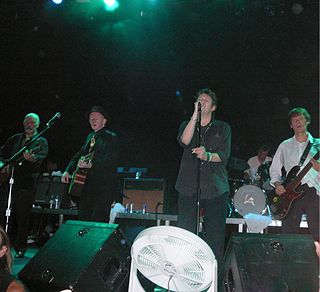
The Pogues are an English or Anglo-Irish Celtic punk band fronted by Shane MacGowan and others, founded in King's Cross, London in 1982, as Pogue Mahone – the anglicisation of the Irish Gaelic póg mo thóin, meaning 'kiss my arse'.

Essential Pogues is a greatest hits album by The Pogues, released in November 1991.



















